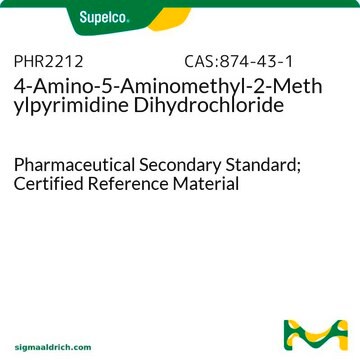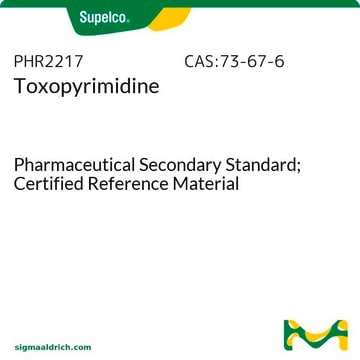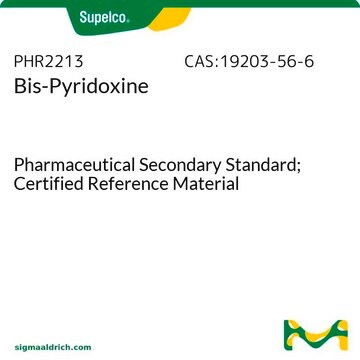61352
4-Methyl-5-thiazoleethanol
analytical standard
Synonym(s):
5-(2-Hydroxyethyl)-4-methylthiazole, Sulfurol
About This Item
Recommended Products
grade
analytical standard
Quality Level
Assay
≥98.0% (GC)
shelf life
limited shelf life, expiry date on the label
technique(s)
HPLC: suitable
gas chromatography (GC): suitable
impurities
≤0.5% water
refractive index
n20/D 1.550 (lit.)
n20/D 1.550±0.001
bp
135 °C/7 mmHg (lit.)
density
1.196 g/mL at 25 °C (lit.)
application(s)
cleaning products
cosmetics
flavors and fragrances
food and beverages
personal care
format
neat
SMILES string
Cc1ncsc1CCO
InChI
1S/C6H9NOS/c1-5-6(2-3-8)9-4-7-5/h4,8H,2-3H2,1H3
InChI key
BKAWJIRCKVUVED-UHFFFAOYSA-N
Looking for similar products? Visit Product Comparison Guide
Application
Packaging
Signal Word
Warning
Hazard Statements
Precautionary Statements
Hazard Classifications
Eye Irrit. 2 - Skin Irrit. 2 - STOT SE 3
Target Organs
Respiratory system
Storage Class Code
10 - Combustible liquids
WGK
WGK 2
Flash Point(F)
233.6 °F - closed cup
Flash Point(C)
112 °C - closed cup
Choose from one of the most recent versions:
Already Own This Product?
Find documentation for the products that you have recently purchased in the Document Library.
Our team of scientists has experience in all areas of research including Life Science, Material Science, Chemical Synthesis, Chromatography, Analytical and many others.
Contact Technical Service






